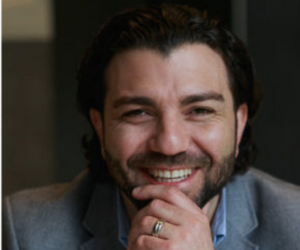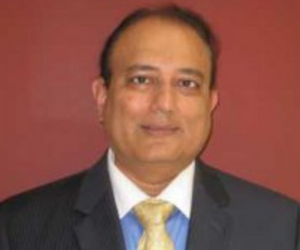Health of American Women: It’s Problematic
THINGS ARE NOT WHAT YOU EXPECT IN U.S. HEALTHCARE
There’s a widespread perception that the United States has the best health care in the world. After all, we spend more on health care per person, we have cutting-edge technology, excellent researchers, and really sophisticated health centers. Yet our life expectancy is shorter, and our disease rates are higher than the rest of the industrialized world. This is seen across all sectors and all age groups up to age 75. In addition, we see patterns for women that are particularly worrying. In the 1980s, when it comes to life expectancy, U.S. women were somewhat in the normal range compared to the rest of the industrialized world. Today, women in the U.S. are at the bottom. We spend $2.8 trillion per year on health care, yet 42% of women are dying at higher rates than they were a generation ago.
MULTIPLE FACTORS CONTRIBUTE TO THE DECLINE IN U.S. HEALTH OUTCOMES
I chaired a panel of the National Research Council and the Institute of Medicine that was charged with looking for an explanation for this decline in health outcomes. We did a deep dive and looked at such factors as: the health care system; health behaviors; socioeconomic conditions; the physical and social environment, such as the built environment and the way cities are organized; and public policies and social values. In each of these domains we found that the U.S. lagged in comparison to other industrialized countries. The bottom line is that unless we take bold transformative action, U.S. health outcomes are likely to deteriorate further.
THE HEALTHCARE PROVIDER CAN HELP AT THE NATIONAL LEVEL
The decline in life expectancy in the U.S. is a huge public health concern. Especially as it concerns women, and yet it’s hard to get research funding to study the causes. We spend research funds on such things as nanotechnology and gene mapping, but we’re not dealing adequately with social factors that have a much greater impact on our population. When it comes to women’s health, we’re dealing with a problem that threatens half the population and that will shape the health trajectory for the next generation because the health threats to women also extend to their children. We need more research to figure out what is going on. Health care providers can have an impact nationally by working with their professional groups. Professional groups can have a large impact on public policy.
HEALTHCARE PROVIDER CAN HELP AT THE COMMUNITY LEVEL
Health care providers can have a major impact on local policy. When a healthcare provider speaks up when the community is deciding about more physical activity in the schools, or healthier food in the cafeteria, or where a bus depot will be located, the community listens. When policy issues that affect health are being decided, they should attend community meetings or accept invitations from local radio, television, or newspapers for a chance to be interviewed on the subject.
HEALTHCARE PROVIDERS CAN HELP AT THE INDIVIDUAL LEVEL
Healthcare providers can help their patients by looking beyond the walls of the clinic. They can take into account the environment in which their patients live, for example. Let’s say a mother comes to a pediatrician with an obese child. The pediatrician could say, “Johnny needs to exercise more, so make sure he goes out and plays for 30 minutes a day.” A pediatrician who doesn’t realize that Johnny lives in a high crime area will also not know that the mother would be crazy to let him play outside.
Imagine a scenario in which the electronic medical record alerts the pediatrician to the neighborhood conditions for this patient and identifies a community resource center that offers indoor after-school exercise options. The pediatrician’s advice would be more meaningful: “I know you’re not comfortable with Johnny playing outside. But there’s a community center at the corner of 7th and Vine, where he can exercise indoors. I’ll print this information out for you.”
Search Articles
Latest Articles
The Hidden War: How Hybrid Warfare Targets Democracy
https://foreignpress.org/journalism-resources/the-hidden-war-how-hybrid-warfare-targets-democracy Publication –foreignpress.org
Hybrid Warfare: The West Needs to Stop Playing Defense
https://foreignpress.org/journalism-resources/hybrid-warfare-the-west-needs-to-stop-playing-defense Publication –foreignpress.org
The Invisible Wounds of California’s Wildfires
https://foreignpress.org/journalism-resources/the-invisible-wounds-of-californias-wildfires Publication –foreignpress.org
Investing in Ukraine: A High-Potential Market with Some (Literal) Landmines
https://www.wealthmanagement.com/high-net-worth/investing-ukraine-high-potential-market-some-literal-landmines Publication –wealthmanagement.com
Subscribe to Updates
About Author

Mitzi Perdue is the widow of the poultry magnate, Frank Perdue. She’s the author of How To Make Your Family Business Last and 52 Tips to Combat Human Trafficking. Contact her at www.MitziPerdue.com
All Articles
Why You Need a Family Legacy Mindset
Why You Need a Family Legacy MindsetWhen Vincent Valeri joined the wealth management industry in 2011, he realized there was an extraordinary gap in what most of these organizations offered and what almost all families need. The organizations, he discovered, might be...
Putting the “Family” in Family Business: It’s Worth It
Putting the "Family" in Family Business: It's Worth ItHere’s a question for you: to qualify as a family business, do at least some members of the business need to be related by blood or marriage? Tobi Silver, President of Sterling Resources, LTD has a simple,...
How to Make Your Family Live up to Its Promise
How to Make Your Family Live up to Its PromiseLisa Niemeier, family office consultant and founder of graymatter Strategies LLC, feels that family wealth is a gift. Too often and with too many families, this wonderful gift isn’t allowed to live up to its promise. In...
Silver Arrow’s Secret Sauce: An Investment Thesis Approach
Silver Arrow’s Secret Sauce: An Investment Thesis ApproachLet’s suppose a delightful situation. One way or another (maybe through inheritance, or you got a bonus, or you sold your company) you have some money available to invest. It’s a responsibility. What’s your...
How to Preserve Your Legacy, Using a Stone-Age Technique
How to Preserve Your Legacy, Using a Stone-Age TechniqueAndrew Suhl has added an electronic twist to a Stone-Age practice. Amazingly, the ancient practice we’re talking about is one that even today is one of the most essential tools for keeping your family together...
Seven Tips for Personal Cyber Security
Seven Tips for Personal Cyber SecurityRajesh Mahadwar, CEO of Softkey,Inc., is a great friend of mine, and we bonded over a shared interest in cyber security. He knows my opinion, that if you don’t get this right, you’re letting yourself in for a world of misery and...






